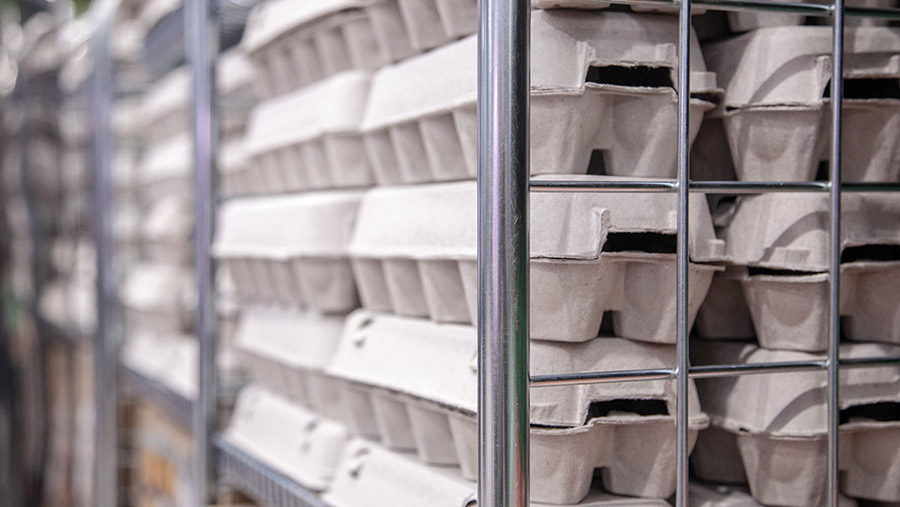Noble Foods raises egg price but farmers face costs crisis
 © Adragan/Adobe Stock
© Adragan/Adobe Stock The UK’s largest egg packer, Noble Foods, has announced a 6p/doz price increase for its free-range and organic producers, but rising costs across the supply chain mean farmers are still facing heavy losses.
While the price rise is welcome, the British Free-Range Egg Producers’ Association (Bfrepa) has warned that a huge number of free-range egg farmers are losing money on every egg laid.
Producers have demanded a 40p/doz price increase from retailers, which is passed back down the supply chain.
See also: Egg producers ‘on the brink’ as 30% cost rise wipes out profits
Responding to Noble Foods’ announcement, Bfrepa chief executive Robert Gooch told Farmers Weekly: “Every price increase is welcome. We are looking for more, but aren’t going to get the double-digit increases we need in one go, so we will keep working.”
Mr Gooch said the free-range egg price increase was driven by supply now starting to come short as producers go out of business.
This follows an oversupply when production was increased to meet the spike in supermarket demand during the coronavirus lockdowns.
“It is a typical case of boom and bust that has typified the free-range egg sector as it has grown.
“As it now becomes the dominant production system, we hope there will be a more sophisticated and mature market outlook from everyone in the supply chain.”
Turbulence
Graham Atkinson, agriculture director at Noble Foods, said its producers were facing “turbulent cost pressures” that cannot be ignored.
“Because we operate long-lasting feed deals across our base, this increase reflects non-feed-related inflation elements. I hope it demonstrates our long-term intent to put our producers first,” Mr Atkinson said.
Noble Foods said its milling unit has also seen the impact of cost pressures, particularly since the production and delivery processes are heavily energy dependent.
In addition to the price increase, Noble Foods will not pass on the inflationary milling costs to its producers on pre-agreed schemes or feed link arrangements.
Free-range costs of production
Production costs reviewed and prepared by Adas, based on prices in mid-September, reveal the pressure free-range egg producers are facing.
Feed costs were reported to have increased slightly over the past month. The average feed price is now £390.60/t, which represents an increase of £2.20/t.
This is equivalent to a feed cost of £20.67 a bird, or 74.04p/doz eggs, based on an average daily feed intake of 126g.
Adas said electricity prices in particular are extremely volatile, with some producers being quoted in excess of 100p/kWh.
Electricity costs jumped up from 2.59p/doz eggs to 8.17p/doz eggs, which is equivalent to more than £2.20 a bird a cycle.
The average egg price in September increased by just under 2p and stands at 102.72p/doz.
The calculated egg price for “high-performance” flocks (which assumes lower second-quality eggs and higher medium and large egg levels) is now 104.34p/doz.
